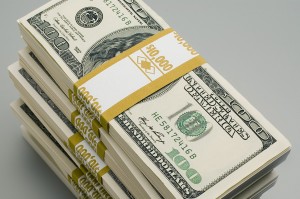A New Way to Score Tax and Spending Bills
< < Go Back
The Wall Street Journal reports that House Republicans are looking at changing the way that the Congressional Budget Office (CBO) and the Joint Committee on Taxation (JCT) score tax and spending bills.
The CBO scores spending bills, while the JCT scores tax bills. Currently, these groups generally ignore any impact that proposed legislation would have on economic behavior when estimating the costs of a new measure. But if the GOP-supported rule change passes, the groups would be required to estimate the macroeconomic impact of “major” House legislation. “Major legislation” would be any bill with an annual budgetary effect at least 0.25 percent of GDP.
According to the Wall Street Journal, just three bills taken up by the House in fiscal year 2014 would have been subject to the requirement. Still, supporters say the change would provide a more accurate measurement of a rule’s costs. How? Consider tax changes — lowering rates and getting rid of loopholes can be expected to ultimately raise tax revenue because of the boost to economic growth. Standard scoring models, however, ignore that likely growth from increased economic activity and assume no resulting growth from such tax reform. Requiring the CBO and the JCT to take the economic effects of legislation into account would result in cost estimates that better reflect economic behavior.
More From NCPA:




